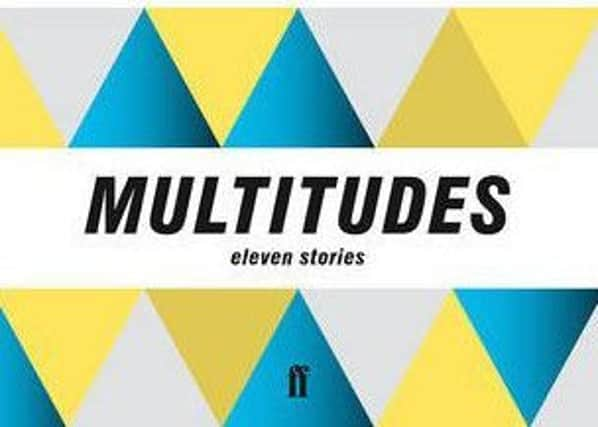Book review: Multitudes: Eleven Stories by Lucy Caldwell


Multitudes: Eleven Stories by Lucy Caldwell | Faber & Faber, 170pp, £12.99
For the epigraph to this engaging and vividly imagined collection of short stories, Belfast-born and raised Lucy Caldwell has chosen the following lines from her countryman Van Morrison’s Astral Weeks: “Ain’t nothing but a stranger in this world / I’m nothing but a stranger in this world / I got a home on high / In another land / So far away / So far away.”
Advertisement
Hide AdRarely can a work of fiction have opened with a quote that speaks so eloquently of what’s to come, because if there are two interlinking themes that run through these coming-of-age tales like letters through a stick of rock, they are the feeling of not quite fitting in with the rest of society, and the desire to escape to somewhere else, somewhere you might be accepted for who you really are.
The society in question, the one that time after time leaves Caldwell’s characters with the stark choice of either conformity or emigration (or worse), is the Belfast of the recent past – the appearance of the early computer game Zork in one story suggests the 1980s; a reference to going to the cinema to see My Girl suggests the early 90s. We can assume, then, as Caldwell was born in 1981 that she is drawing at least to some extent on her own experiences of childhood and adolescence.
The collection opens with “The Ally Ally O”, in which a woman, originally from England, now living in Belfast, takes her three daughters for a night-time drive, out of the city and up to a viewpoint, from where they can see their hometown: “When I first came over, your mum says suddenly, your dad drove me up here at dusk, to watch the lights come on all over the city. That’s when I thought Yes, I could live here after all. You always tell us to grow up and get away, you say.”
The escape theme is raised early on, then, as is the sense of Belfast as a city on edge. The unnamed narrator notes that her younger sister “doesn’t know that there are places that you never ever go, not on purpose and not even by accident. One wrong turn, one wrong consonant; that’s all it takes.”
But while the Troubles are occasionally alluded to, they are never really more than ominous background noise here; the problems Caldwell’s vividly imagined cast of characters have to contend with have more to do with stifling social expectations than bombs and bullets.
In “Here We Are” a secret lesbian romance blossoms between a shy flautist and the school’s star musician, a clarinettist two years her senior. At one point, the narrator, the flautist, remembers a sudden explosion of emotion in a cafe. “‘I don’t want us to have to hide,’ I went on, ‘I want to tell everyone: my parents, your dad, everyone. I want to stand in front of the City Hall with a megaphone and shout it out to the whole of Belfast.’ Suddenly neither of us was laughing any more. ‘I wish we could,’ she said.”
Advertisement
Hide AdSimilarly, in “Through the Wardrobe” a male narrator – a rarity in this book – discovers at age six that he feels “wrong” in his body. Escape is achieved, but even when he finally gets the go-ahead for a sex change, his family are far from understanding, even his sisters “flicking each other looks out of the corners of their eyes.”
Are there times when it feels as if Caldwell is picking at the same intellectual scabs over and over again? Perhaps. By narrowing her thematic focus, however, she has produced a collection that feels like a truly unified work of art, and one that demonstrates how all of us, no matter how different we may seem, suffer the same, age-old growing pains.